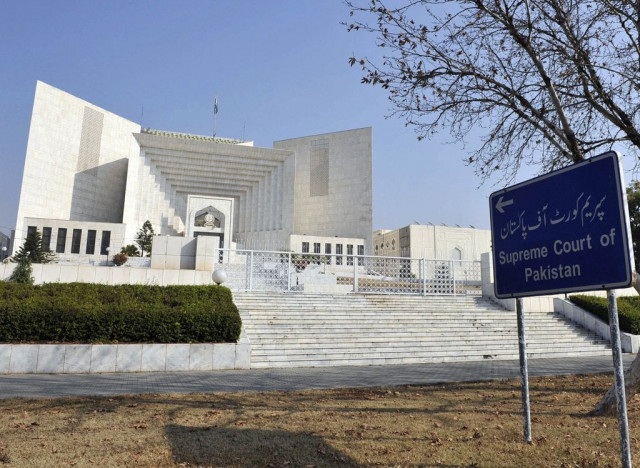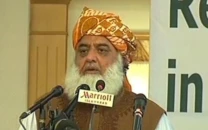Top court rescinds order on fee reduction
Top court orders recalculation of fee on basis of fee structure prevalent in 2017

PHOTO: AFP
“All interim orders passed during the pendency of the appeals (including the order dated 13.12.2018 passed in Civil Appeal No 1095/2018 regarding reduction of fees by 20% as an interim measure) have ceased to be effective, subject to recalculation of fee by using the fee prevailing in 2017 as base fee...
“[This is] in accordance with the provision(s) of the Punjab Private Educational Institutions (Promotion and Regulation) (Amendment) Act, 2017 and onwards, for the Province of Punjab,” said short order.
The order was authored by Justice Ijazul Ahsan over the petitions filed by private schools against earlier orders of the former chief justice of Pakistan (CJP) Mian Saqib Nisar. Incumbent CJP Asif Saeed Khosa and Justice Faisal Arab were also part of special bench that heard private schools’ petitions.
The court said for the province of Sindh, fees may be recalculated using the fee prevailing on 29.06.2017 as the base fee and onwards, in accordance with the Rules of 2005 (gazetted on 29.06.2017).
“Provided that the schools shall not recover any arrears on account of the reduction in fee by reason of the interim order of this court dated 13.12.2018 till the date of this judgment.
“Therefore, all the review petitions filed against the said interim order are disposed of in these terms. In view of the fact that these appeals/petitions are being finally decided, all criminal original petitions and civil miscellaneous applications are disposed of,” the order added.
The court also directed all schools to collect the fee, strictly in accordance with the procedure and timeframe provided by the law, the rules and regulations including, but not limited to the Punjab Private Educational Institutions (Promotion and Regulation) Ordinance, 1984, as amended by the Punjab Private Educational Institutions (Promotion and Regulation) (Amendment) Act, 2017 and the Rules of 2005.
The apex court upheld the Sindh High Court judgment on fees of private schools. However it set aside the Lahore High Court verdict on same issue.
While agreeing with the CJP and Justice Ijazul Ahsan on validity of Section 7A of Punjab Private Educational Institutions Ordinance, 1984 – which allows 8% increase in tuition fee in an academic year – Justice Arab differed on the reasonableness of Rule 7(3) of Sindh Private Educational Institutions Rules, 2005, which allows private schools to increase 5% fees with the permission of regulator.
Justice Arab said parents of students coming from the whole range of middle class families approached the courts, not because they wanted to challenge the tuition fee which the schools charged at the time of taking admissions but what agitated them was the periodical increases made in the tuition fees which proved to be an enormous burden on their purses.
“Hence a substantial raise in fees in comparison to the existing fees stirred agitation amongst the parents who invoked Rule 7(3) of the Sindh Private Educational Institutions (Regulations and Control) Rules, 2005 in Sindh and Section 7A of the Punjab Private Educational Institutions (Promotion and Regulation) Ordinance, 1984 in Punjab in order to seek reduction.
“Section 15 of the Sindh Private Educational Institutions (Regulations and Control) Ordinance, 2001 gives rule making power to the provincial government, which inter alia states that rules shall provide for fixation of tuition fees and other sums to be realised from the students.
“Pursuant to this rule making power, the Sindh Private Educational Institutions (Regulations and Control) Rules, 2005 were framed. Rule 7 (2) and (3) provides that fee in an academic year can be increased only upto 5 per cent subject to establishing proper justification before the Registering Authority.
“Hence while providing room for periodical increases, a cap of 5% was imposed which was given primacy over any reason that may justify raise in the tuition fees beyond such limit,” he noted.

1724319076-0/Untitled-design-(5)1724319076-0-208x130.webp)

















COMMENTS
Comments are moderated and generally will be posted if they are on-topic and not abusive.
For more information, please see our Comments FAQ